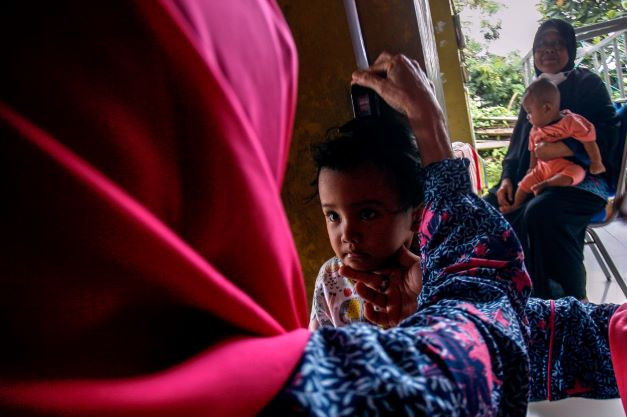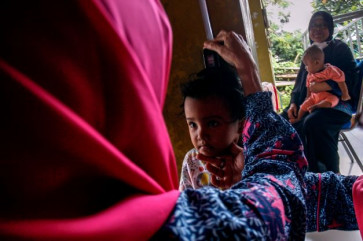Popular Reads
Top Results
Can't find what you're looking for?
View all search resultsPopular Reads
Top Results
Can't find what you're looking for?
View all search resultsOf partnerships and a revolution: Let’s eradicate stunting
The Health Ministry’s Basic Health Survey reveals a worrying statistic: the 2018 anemia prevalence in young women and pregnant women, respectively, stood at 32 and 48.9 percent.
Change text size
Gift Premium Articles
to Anyone
T
he recent instances of a 7-month-old baby in Gowa, South Sulawesi, and a 16-month-old baby in Bekasi, West Java, being fed instant milk coffee and diluted sweetened condensed milk respectively are worryingly etched into the Indonesian public consciousness on early childhood development.
These represent part of a larger issue that is being comprehensively addressed by a whole-of-nation effort. Indonesia wants to eradicate stunting, and we all play an important part in accelerating and scaling up stunting prevention efforts.
The Health Ministry has announced that the 2022 stunting prevalence declined 2.8 percentage points to 21.6 percent from the previous year. In the span of 10 years, we have practically halved the stunting rate, which now stands just short of the World Health Organization’s (WHO) 20 percent threshold. There are still 4.6 million children under five who are stunted.
Indonesia has an ambitious goal, set by President Joko “Jokowi” Widodo, to bring the stunting rate down to 14 percent by the end of 2024. The country’s stunting prevention campaign is spearheaded by a relentless whole-of-government approach comprising 23 ministries and agencies and coordinated by the National Population and Family Planning Board (BKKBN). It continues to gain momentum as partnerships intensify and scale, and very necessarily so.
With the nation well positioned to tap into its impending demographic dividend, the reduction in stunting prevalence in spite of the COVID-19 pandemic gives a clear indication of the real possibility of achieving this ambitious target.
Stunting is commonly understood to be the consequence of chronic deficiency of micronutrients. Our high stunting prevalence is not due to the lack of access to nutritious food but rather the lack of awareness of stunting and how to prevent it.
The National Strategy to Accelerate Stunting Prevention (StraNas Stunting) has five pillars: national leadership and commitment; national public awareness for behavioral changes and community empowerment; increased convergence of national, regional and community interventions; improving food security and nutrition across the community; and strengthening systems for monitoring and evaluation.



















